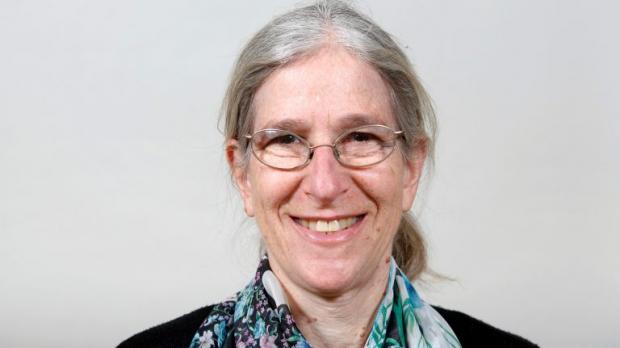Events
An Evening with Aviva Chomsky
[TALK + BOOK SIGNING] Over the last 20 years, the earth has gained two billion more people, a rapid population boom that has strained the very notion of borders as people with the ill luck to be born in impoverished conditions and under the pressure of war, crime, or climate change (or all of the above) figure it’s worth risking their lives to leave, since staying is its own kind of death. Or as writer and scholar Aviva Chomsky explains it, “When most people are forced to leave their homes, they don’t want to leave their homes. The problems of immigration are the problems that force people to leave their homes.”
The immigrant crisis we’re facing in America isn’t particularly new, even with the rise of a nativist president in the White House. Forced child separations and a more aggressive enforcement apparatus strike many as barbaric, but state-sanctioned xenophobia is nothing new for America.
Aviva Chomsky, professor of Latin American Studies and daughter of famed linguist, historian, and critic Noam Chomsky, is coming to the Trinity Episcopal Church on Thursday, September 27 to talk about immigration and labor: where we are now, where we’ve been, and where we’re going.
Chomsky took the time to speak with us about her appearance.
Why do you feel it’s important right now to take your show on the road and talk about immigration, or is this something you’ve always been doing?
I’ve been doing it about 10 years, ever since I published my first book on immigration and I think it’s always important. There’s specific aspects of what’s happening right now that make it a particularly important time to be talking about immigration, but a lot of what’s going on right now is just a continuity of what’s been going on for many years. I think that the anti-immigrant attitude and policies are not new to the Trump administration; certain things have gotten a lot worse, certain things are being expressed more openly now, but in fact a lot of the policies that we’re seeing really have their roots very deep in American history. Some of them have their roots in the Clinton administration; some of them have their roots in the Obama administration. Even though we’re seeing certain things sharpening under Trump, it’s not really new.
Obama never engaged in open hate speech or openly racist commentary about immigrants the way Trump does, and yet Obama was the president that raised the deportation levels to historic heights, that they had never reached before. So if you want to talk about family separation, we associate that with Trump in the policies that he has implemented on the borders now, but Obama actually separated a lot more families. He just did it with a nicer smile.
So what’s different about now?
There’s a couple things that are different about now. I feel like in the last maybe 50 years or so, the concept of illegality has been used a lot with immigrants so that you can hear a lot of people say the kind of phrase that you hear again and again: “Well, I’m not against immigration, I’m just against illegal immigration.” We’re sort of in the midst of a shift here, where the concept of illegality is starting to fade and straight out anti-immigrant sentiment is growing, because some of the policies that Trump is putting into place have actually been illegalizing people who formerly had legal status, and that’s happening in all kinds of different ways. Instead of just going after people who are technically illegal, he’s actually trying to make a lot more people technically illegal. Immigration law is exceedingly complex, and there’s hundreds of different statuses, and statuses can change frequently, so the idea that some people are legal and some people are illegal is just nonsensical.
Locally, we’ve been following the case of Carlos Cardona, a dairy worker from Guatemala who has been in Western New York for 10 years and is likely facing deportation for speeding. Under prior administrations, this kind of offense would have been administratively closed, and now that avenue itself is closed.
A lot of people in cases like the one you’ve been describing, their cases weren’t completely administratively closed what they were granted what was known as a stay of removal. Which is a temporary legal status, but they have to check in with ICE—they’re under ICE monitoring, so they have to check in with ICE every year. Those stays of removal, they’re tenuous and temporary, but under the Obama administration they were pretty routinely just renewed every time a person went to check in. This is definitely something that it’s changed: A lot of people have these stays of removal are finding now that when they go in for their annual check-in, they’re put immediately into deportation proceedings.
Is there anyone in mainstream politics we can look to currently who gets it?
I don’t think there’s any politician that we could put our faith in. I think there’s many grassroots organizations that are working on these issues from a moral and ethical stance. But the job of a politician is to get elected and make compromises. So I don’t think we’re going to find the answers in a politician.
When:
We're sorry, this event has already taken place!


COMMENTS